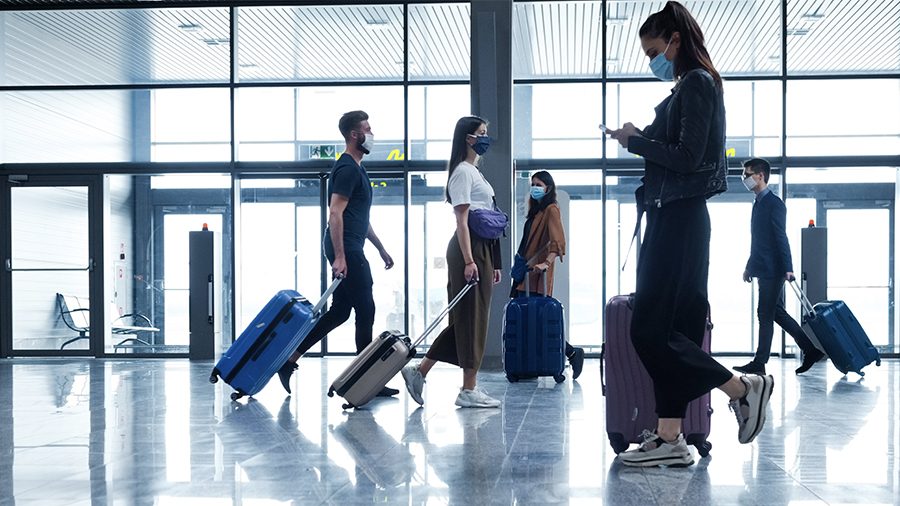Indonesia: Post-Pandemic Tourism Sector Opportunities
by Putu Radar Bahurekso
Klareco Communications, Indonesia
The Covid-19 pandemic is a major challenge for global economies and Indonesia is no exception. Like in other countries, there are a lot of people in Indonesia who have had to inevitably accept the policy of salary-cuts, some have been temporarily laid off, while others have lost their jobs.
When the PSBB (large-scale social restriction) policy was enforced by the government to ensure that the public stay at home to prevent the spread of COVID-19, workplaces were forced to pivot their operations and adapt quickly to the new work from home set-up.
With people staying home, these overnight changes sent shockwaves through the country’s tourism sector. Of course, this also had a knock-on effect across industries that benefit from Indonesia’s previously thriving tourism sector such as the food and beverage sector, airlines, hotels, and MSMEs. Almost instantly, tourist areas that used to be crowded with visitors lost their customers. Hotels, airlines, restaurants, and souvenir shops were forced to temporarily stop their businesses.
However, fast forward to the present day and the government regulations related to social restrictions have begun to soften, the PSBB has (largely) stopped and Indonesia is entering a “new normal”.
This period has seen people slowly return to their pre-COVID day-to-day activities and the country’s economy has started its long journey to recovery. The pulse of the tourism sector which had stopped before, now begins to gently beat again.
More challenges now lie ahead for the tourism sector as a result of the pandemic changing the behavior of consumers.
Changing Trends in Travelling
This changing consumer behavior was inevitable for the stakeholders of the tourism industry.
A tourism trend expected to emerge in this new normal phase is that consumers will be much more comfortable, or even prefer to, travel solo and in smaller groups. This trend is a result of social distancing as people have become hesitant to traveling large groups or visit crowded places. Since limiting social interactions has now become a norm after all, consumers have grown more wary of these social interactions on a personal level too and this is reflected in traveler behaviours.
This translates into another trend where travelers are choosing different means of transport to travel within the country. Where previously people preferred to travel by air, the risks of flying in a pandemic accompanied with air travel requirements such as compulsory COVID tests and quarantine periods, have made land transportation more popular.
Moreover, with borders closed to international travelers, there has been a spike in domestic tourism. More people want to get out of their homes and explore what is on their doorstep. This is somewhat a positive trend for the economy. Data from McKinsey & Company shows that encouraging domestic tourism can be a way to compensate for some of the loss in international revenues.
As tourism trends change, the pandemic situation has also changed consumers’ needs when it comes to planning their holidays. Based on news released by Kompas.com, Azril Azhari, Chairman of the Indonesian Tourism Scholars Association stated that two of the key considerations that people now take into account when traveling is the matter of cleanliness and with price still being a concern for some travelers as people cut back on spending.
Gaining Trust from People Towards Travelling
For a country that is proud of its beautiful nature, diverse people, and rich cultures, the tourism sector is one of the most important sectors for Indonesia and domestic tourists need to be encouraged back to explore.
To increase public interest and trust, every stakeholder in the tourism sector must synergize well and this can start from the implementation of policies, promotional content, and the public communication.
Similarly, the government must seize the opportunity to introduce and promote domestic tourism destinations that are less popular with tourists.
For those that have been popular over recent years, this downtime can be used by local communities and businesses to prepare for the upturn by cleaning up the tourist areas, reorganizing tourism support systems such as ticketing systems, waste cleaning management, parking arrangements, and bolstering other tourism services.
From the business side of things, consumers need to be assured that their destination has implemented standard health protocols and are safe to visit. Once they have covered this base, business owners might need to consider implementing promotional packages that are tailored to the purchasing power of the people based on current situation.
By encouraging the tourism industry to resume its activities, several other sectors will also follow through – such as the food and beverage, arts and culture, the transport sector, oil and gas, energy, and MSME industry.
*This article is previously published as an opinion editorial at Kompas.com titled “Melihat Peluang Pariwisata Pasca Pandemi”. For full article in Bahasa Indonesia please click this link.
*This article is a personal opinion from the author and does not represent the opinion from institution where the author work or where this article is published.


